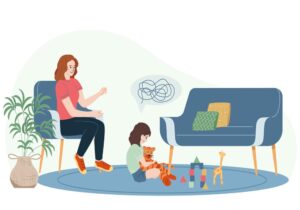How Psychoeducational Assessments Help Shape Better Learning Plans in School
This article has been researched and written by Sara Caroppo. AI has not been used in producing this article.
No two children are the same. Every child brings a unique mix of strengths, challenges, and ways of learning into the classroom. Two kids might both struggle with reading, yet for completely different reasons. That’s where psychoeducational assessments step in—they give us a full picture of how your child thinks, learns, and even feels, looking at everything from their cognitive and academic skills to their emotions and behaviors. With those insights in hand, teachers, specialists, and families can craft a learning plan that really fits your child. At ClearMinds Center, we believe understanding your child’s individual psychoeducational profile is the first step to helping them shine.
What Exactly Is a Psychoeducational Assessment?
Think of a psychoeducational assessment as a deep-dive into how your child learns and thinks. We don’t just glance at report cards or classroom behavior—we pull together standardized tests, in-the-moment observations, and friendly chats with your child (and you!) to get the full picture. Here’s what we look at:
Imagine watching your child as they tackle a new story—do they pick up unfamiliar words like little detectives, or do they pause to puzzle out each one? That’s us getting a feel for how they think. Then there’s the way they dive into reading or math: maybe they sail through a chapter book but hit a wall with word problems, or they love counting games but stumble over spelling tests.
You’ll see how your child tackles step-by-step tasks: do they jump right in—gathering their markers, sketching a quick outline, and powering through—or do they hesitate, wondering where to begin? And just as important, we tune into their mood: are they excited and ready to go, or does a bit of jitters hold them back? Those little everyday moments show us exactly where they shine and where a helping hand can make all the difference.
Leveraging Results to Empower Your Child
Armed with detailed assessment results, educators collaborate to design an individualized education plan tailored to each learner’s needs. Key elements often include:
- Hands-on learning techniques: not all children learn through reading and writing. Many children respond better to a kinetic or “hands on” approach. For example, your child may engage more when they can move letter tiles around instead of staring at flashcards.
- Customize technology for learning: some children need technology to assist with their learning. For example, they may respond better to reading with an app that reads the word out loud – highlighting each word as it’s spoken. Others might need to write out their written assignments with a computer. The idea is to find what works best for your child and their specific needs.
- Classroom accommodations: a psychoeducational assessment can identify special in-class accommodations to assist with their learning and processing. For example, they may need extra time for tests, to sit in the front of the classroom, or require breaks to get their wiggles out.
When your child’s support plan flows directly from their own strengths and challenges, there’s no more guessing. Teachers know exactly how to help, you see progress happen, and your child gets the boost they need to thrive.

Partnering with Schools and Families
Successful learning plans depend on collaboration. At ClearMinds Center, we work directly with parents, teachers, and school psychologists to:
- Review and interpret assessment findings together
- Prioritize goals that meet both academic standards and personal growth
- Adjust strategies as the student develops new skills or encounters fresh challenges
Our ongoing consultation ensures that as a child grows, their learning plan evolves—keeping pace with changing needs and fostering continual improvement.
Unlock Your Child’s Potential
Every student deserves a roadmap to success that reflects their individual learning journey. Psychoeducational assessments provide the clarity needed to build these personalized plans, transforming uncertainty into targeted action and real progress. If you’re ready to discover how a psychoeducational assessment can shape a brighter educational path for your child, contact ClearMinds Center today.
Let’s work together to unlock your student’s fullest potential.
How Psychoeducational Assessments Help Shape Better Learning Plans in School
No two children are the same. Every child brings a unique mix of strengths, challenges, and ways of …
Can Relationship Counseling Work for Toxic Relationships?
Relationships can be complicated, emotional, and at times, painful. While every couple experiences ups and downs, some relationships …
10 Signs You May Have Anxiety
Anxiety is a normal and natural human response to stress, danger, or uncertainty. However, when anxiety becomes excessive, it can …
Child Sleepwalking and Talking: What You Need to Know
Childhood is a time of rapid development, filled with new experiences—and sometimes, surprising nighttime behaviors.
Questions a Child Psychologist Might Ask
When preparing for your child’s first appointment with a psychologist, it’s natural to feel curious—or even a little anxious—about what …
55 Love Questions for Couples to Deepen Your Relationship
In any relationship, communication is key. Whether you’re just starting out or have been together for years, asking meaningful
Stress vs. Anxiety vs. Burnout: How to Recognize the Difference
In today’s fast-paced world, understanding the differences between stress, anxiety, and burnout is crucial for …
Relocation Depression: Definition and Ways to Cope
Relocation depression, also known as moving depression, is a form of situational depression that arises from the stress …
How to Help Your Child with Anxiety Through Divorce
Divorce is a significant change that affects every member of a family. For children, the uncertainty and adjustments …
Depression vs Sadness: Understanding the Difference
While often used interchangeably, the terms “sadness” and “depression” represent distinct emotional states, each with …











